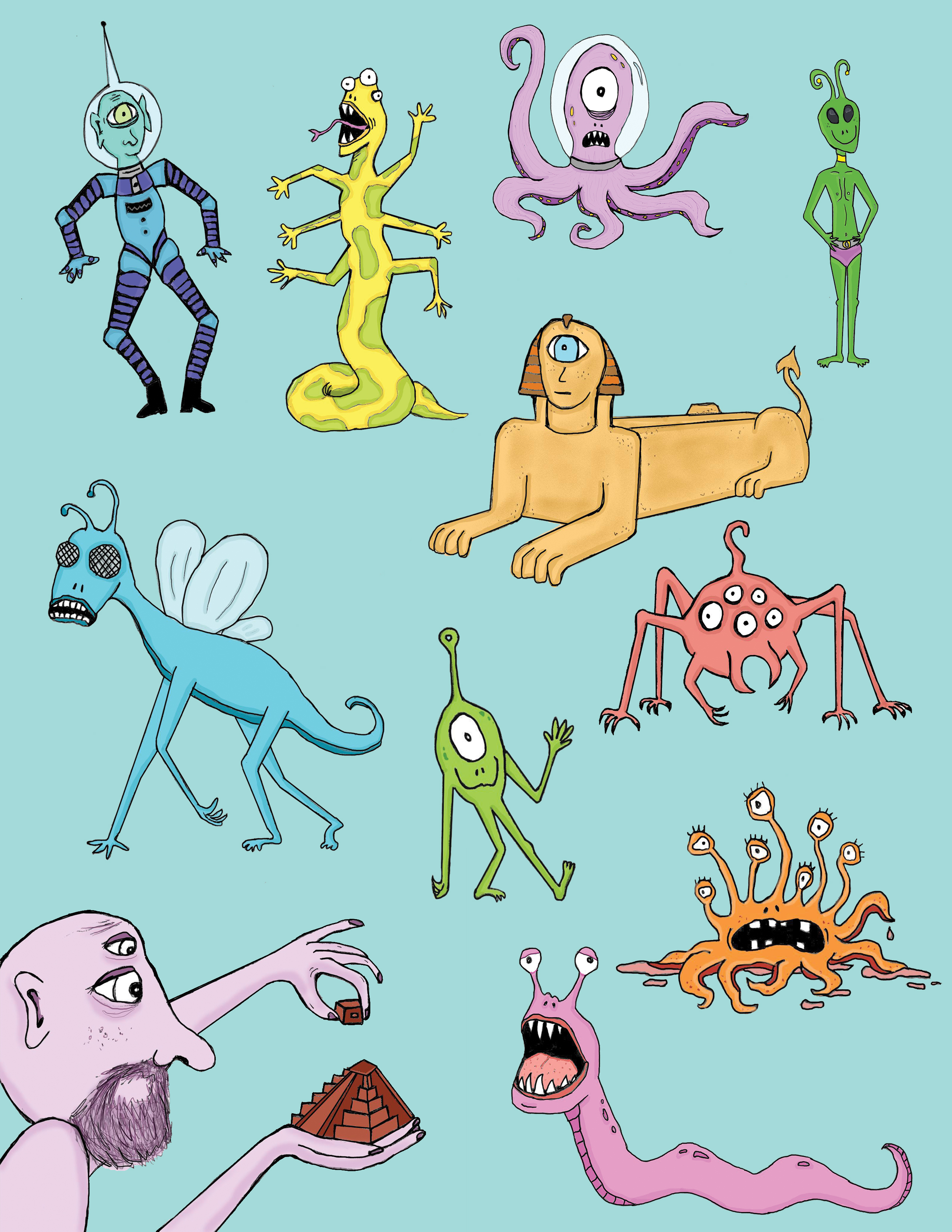I worship at the altar of primary sources, Margaret MacMillan writes my dogma, and libraries are my churches.
As a U of T student, studying of history and political science has become my religion. People are always looking for an explanation of life’s greatest mysteries, and when they find a set of beliefs that gives them the correct answers, it becomes all-consuming. We take for granted that our doctrine based on centuries of study is accepted as legitimate in our society. Some are not as lucky.
I was first introduced to Ancient Aliens — a cult television show that makes the rather outrageous attempt to explain historical events as products of alien interactions — in the eleventh grade. My history teacher thought it would be entertaining to begin a semester of ancient history by showing us an early episode. When the bell rang, I walked straight to the guidance counsellor’s office and dropped the class.
Even if you haven’t seen Ancient Aliens, you’ve probably seen the meme of a man passionately waving his hands with the word ‘aliens’ written underneath. That man’s name is Giorgio Tsoukalos, one of the original hosts of the series. He and his colleagues have been on the air for seven years, having wrapped up the eleventh season of Ancient Aliens last fall.
I avoided the show for years, until two weeks ago, when I decided to investigate how people could buy into the show’s conspiracies by embarking on the frustrating task of actually watching it. I made it through half an episode before I began to loudly argue with the hosts. I paused the show every 10 minutes to look up a Wikipedia article with an urge to prove the theories wrong. These so-called historians were challenging everything that I had studied for over four years, and even though they couldn’t hear me, I made sure to voice my arguments and include an adequate number of sources.
Over the course of 119 episodes, every historical question or mystery is explained by a bogus theory of aliens meeting humans and providing them with technology to help accomplish monumental tasks.
For example, according to theorists on the show, the Pyramids of Giza were built with the help of aliens that cut stone blocks, while Machu Picchu was built using an alien forge that could melt rock.
For the uninitiated, Ancient Aliens begins rather innocently, showcasing the mysteries that surround some of the ancient wonders of the world. But the show quickly descends into madness and by Season 2, Episode 5, “Aliens and the Third Reich”, pseudoscientists tout theories of collaboration between the Nazi regime and aliens through Adolf Hitler’s supposed use of alien technology. One Ancient Aliens contributor, Henry Stevens, even published a book on alleged Nazi development of flying saucers, aptly titled Hitler’s Flying Saucers — a book which permanently altered both my faith in humanity and Amazon.ca
recommendations.
As a history student, I have no desire to watch a so-called ‘documentary’ that claims to upend the thinking of “mainstream archaeologists.” But fans of Ancient Aliens are far from few. Millions have watched the show and each episode can be streamed online, free of charge. There are also sizeable online communities that discuss both old and new evidence of the influence of extraterrestrials, hosted by a range of so-called experts.
While ‘Aliens!’ is undoubtedly not the best answer to big, historical questions, it is possible to understand Tsoukalos’ and his colleagues’ perspectives. There are incredible ancient structures that have inspired awe and raised questions of how they were used and built without the technological advances that we enjoy today. It wouldn’t be the first time that a community of people celebrated the wisdom conferred onto them by cosmic beings.
It is astonishing how easily the followers of ancient alien theories adopt a set of beliefs that willingly disregard the presence of proof. Indeed, it is strange that long passages of the Great Pyramids are coated in salt, but that does not mean the pyramids were built as a power plant that converted hydrogen into microwave energy like the show suggests. In an age of ‘alternative facts’ and derision of the ‘mainstream media,’ the culture that surrounds fringe theories and pseudoscience are all the more obvious and worrisome.
Near the end of my Ancient Aliens binge, a couple of friends joined me to watch an episode. They sat in stunned silence as I tried to keep the eye-rolling to a minimum. As a former jet propulsion scientist described how Nazis created a wormhole to escape justice at the end of World War II, one of my friends asked incredulously, “Do they believe their own bullshit?”
“I think so,” I replied. And if so, should we judge them for it?
